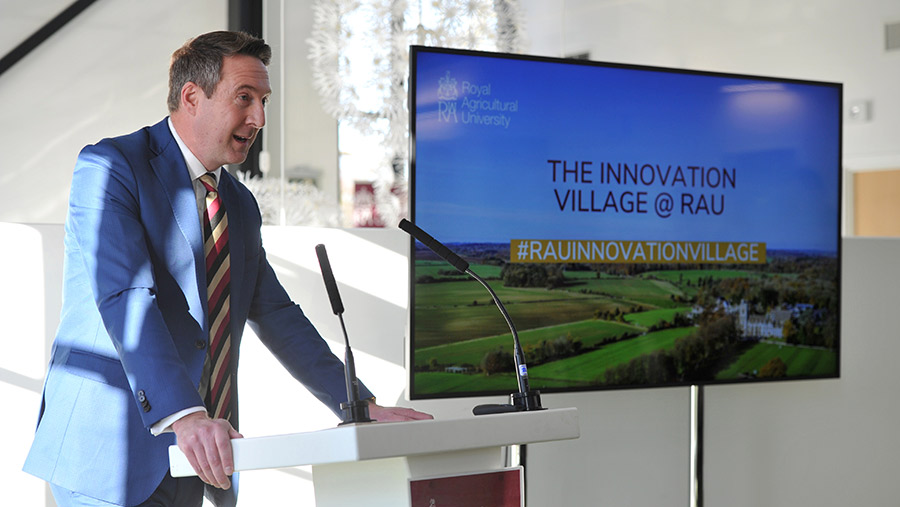New £100m innovation village to be built at RAU
 © Mikal Ludlow Photography
© Mikal Ludlow Photography Royal Agricultural University (RAU) is planning to build a new £100m innovation village at its campus in Cirencester.
The 12-ha site will host researchers, start-up businesses, and policymakers, working to support growth and development in the agricultural industry.
It is designed to support the sector by creating a hub for agri-tech businesses, and individuals working on advances in food production and land use.
See also: Net-zero farming ‘impossible’ without agri-tech investment
Subject to planning, construction is due to begin in 2024 with the build process expected to take up to five years.
The village will be built as a fully carbon neutral and sustainable site, providing workspaces for business start-ups and scale-ups, a research and innovation centre, conference facilities, and residential units.
Funding for the project will come from a mixture of private and government investment, with the Department of International Trade already showing support.
RAU vice-chancellor Peter McCaffery said the innovation village would be the first of its kind in the UK.
Prof McCaffrey said: “A £100m project, centred on supporting industry, food producers, farmers, and landowners in developing innovative practices while protecting land health and building resilience in rural communities, our innovation village will turbo-charge SME agri-tech enterprise activity with a distinctively rural feel.
“We anticipate we will increase the RAU’s current contribution of £52m to the local and regional economy by half as much again over five years when the project is up and running,” he added.
Alliston Centre growth hub
About 100 individuals and start-up businesses are already based at the university’s Alliston Centre growth hub.
The UK’s leading agri-technology incubator and accelerator facility, Farm491, is also based on-site and has helped create more than 120 jobs and generate £33m of investment in agriculture.
The new Innovation Village aims to double new business output within its first five years, and will expand on its current business support offering through events, training, and employment.
James Bolesworth, managing director at grain analyst CRM AgriCommodities, which is based on site, said tangible advantages, such as networking and events for a small business were really important.
